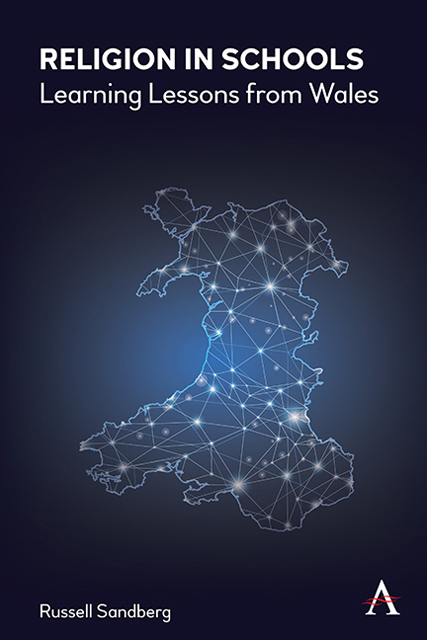8 - The Consultation Phase
Published online by Cambridge University Press: 09 December 2022
Summary
On 28 January 2019, the Welsh Government launched a White Paper to begin the consultation process on ‘proposals for legislation on the structure of the new curriculum framework, with the four purposes at its core, the six Areas of Learning and Experiences (AoLEs), the Welsh Language, the English Language, Relationships and Sexuality Education and Religious Education’. In terms of religious education, the document suggested that RE would be part of the Humanities AoLE together with history, geography, social studies and business studies. It stated that RE ‘should remain compulsory up to the age of sixteen’. This was different to the current law which requires RE for all those studying in schools beyond the age of 16 years. The document proposed that RE would become optional for sixth formers with schools under an obligation to provide it if it was requested. The document further stated:
‘It is our intention also that RE reflects our historical and contemporary relationship in Wales to philosophy and religious views, including non-religious beliefs. Therefore the current legislation will be amended to ensure the agreed syllabus for RE takes account of non-religious world views which are analogous to religions (e.g., humanism).’
The White Paper envisaged leaving the position of schools with a religious character largely untouched. It noted that ‘Voluntary Aided schools with a religious character will continue to deliver their denominational RE and guidance will be developed by the relevant authorities to make the links with the Humanities AoLE’. It also suggested retaining but curbing the role of SACREs. As the Paper noted:
‘Our approach will recognise the local responsibility of the Agreed Syllabus Conferences, local authorities and the place of the denominational syllabus in Voluntary Aided schools but make a clearer connection with a national approach.’
This was to be achieved by stating that ‘each Agreed Syllabus Conference and local authority must give due regard to a supporting framework to be produced by Welsh Government’. Furthermore, the membership of the first committee of Agreed Syllabus Conferences and SACREs were to be amended ‘to encompass non-religious views that are analogous to religious views’ and this was ‘to clarify the current legislation and take account of the effect of the Human Rights Act 1998’.
- Type
- Chapter
- Information
- Religion in SchoolsLearning Lessons from Wales, pp. 59 - 74Publisher: Anthem PressPrint publication year: 2022

